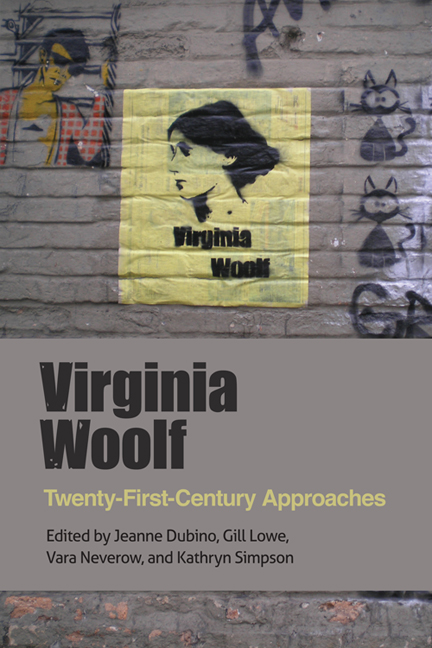Book contents
- Frontmatter
- Contents
- Acknowledgements
- Contributors
- Abbreviations
- Introduction
- PART ONE Self and Identity
- PART TWO Language and Translation
- PART THREE Culture and Commodification
- PART FOUR Human, Animal, and Nonhuman
- PART FIVE Genders, Sexualities, and Multiplicities
- 9 Indecency: Jacob's Room, Modernist Homosexuality, and the Culture of War
- 10 Multiple Anonymities: Resonances of Fielding's The Female Husband in Orlando and A Room of One's Own
- 11 Two-Spirits and Gender Variance in Virginia Woolf's Orlando and Louise Erdrich's The Last Report on the Miracles at Little No Horse
- Index
10 - Multiple Anonymities: Resonances of Fielding's The Female Husband in Orlando and A Room of One's Own
from PART FIVE - Genders, Sexualities, and Multiplicities
Published online by Cambridge University Press: 05 August 2016
- Frontmatter
- Contents
- Acknowledgements
- Contributors
- Abbreviations
- Introduction
- PART ONE Self and Identity
- PART TWO Language and Translation
- PART THREE Culture and Commodification
- PART FOUR Human, Animal, and Nonhuman
- PART FIVE Genders, Sexualities, and Multiplicities
- 9 Indecency: Jacob's Room, Modernist Homosexuality, and the Culture of War
- 10 Multiple Anonymities: Resonances of Fielding's The Female Husband in Orlando and A Room of One's Own
- 11 Two-Spirits and Gender Variance in Virginia Woolf's Orlando and Louise Erdrich's The Last Report on the Miracles at Little No Horse
- Index
Summary
For we think back through our mothers if we are women. It is useless to go to the great men writers for help, however much one may go to them for pleasure. Lamb, Browne, Thackeray, Newman, Sterne, Dickens, De Quincey – whoever it may be – never helped a woman yet, though she may have learnt a few tricks of them and adapted them to her use. The weight, the pace, the stride of a man's mind are too unlike her own for her to lift anything substantial from him successfully.
Virginia Woolf, A Room of One's OwnThe question marks and ellipses, to which we supply silent assent and fill in the blanks, seal the pact of our conspiracy.
Jane Marcus, Virginia Woolf and the Languages of PatriarchyIn the first paragraph of A Room of One's Own, Virginia Woolf's narrator states, ‘“I” is only a convenient term for somebody who has no real being. Lies will flow from my lips, but there may perhaps be some truth mixed up with them.’ The narrator asserts: ‘Here then was I (call me Mary Beton, Mary Seton, Mary Carmichael or by any name you please – it is not a matter of any importance)’ (AROO: 5; my emphasis). This evasive phrasing reveals the same sly intentionality as the first epigraph above in which the narrator asserts that ‘whoever it may be’, a male author is ‘useless’ to women writers. But I will argue that this statement is one of the narrator's lies. Although Henry Fielding is not mentioned in her list of male British literary luminaries, Woolf seems to parody and indeed pillory one of his works in both Orlando and A Room of One's Own: his semi-factual 23-page pamphlet, The Female Husband: Or The Surprising History of Mrs Mary, Alias Mr George4 Hamilton, who was Convicted of having Married a young Woman of Wells and Lived with her as her Husband. Taken from Her Own Mouth Since Her Confinement, published anonymously on 12 November 1746. Fielding's version of ‘Mrs Mary, Alias Mr George Hamilton’ tells the story of one of the three transgressive and unmentioned Mary Hamiltons who are invoked but never identified in A Room.
- Type
- Chapter
- Information
- Virginia WoolfTwenty-First-Century Approaches, pp. 187 - 204Publisher: Edinburgh University PressPrint publication year: 2014



